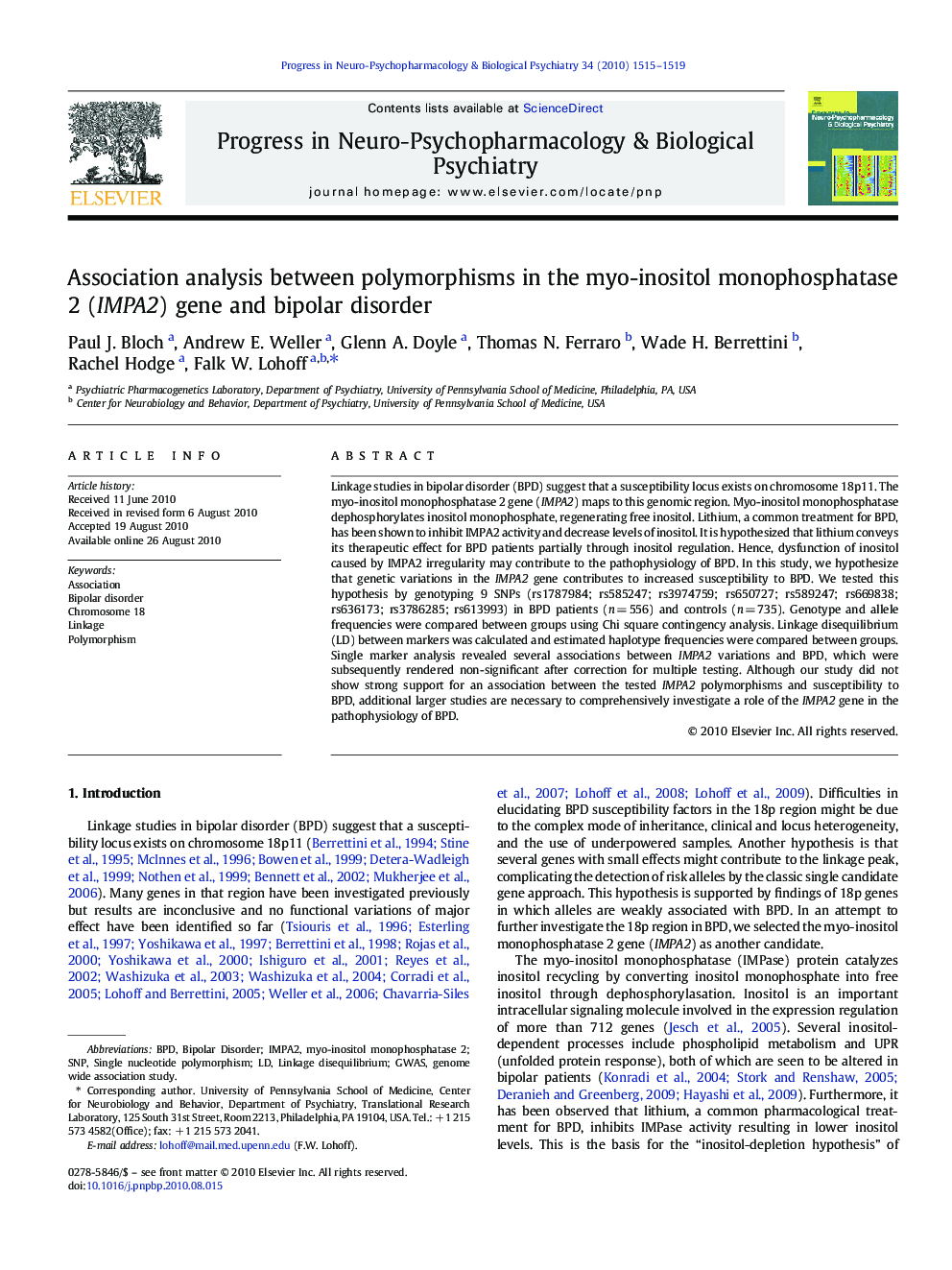| Article ID | Journal | Published Year | Pages | File Type |
|---|---|---|---|---|
| 2565155 | Progress in Neuro-Psychopharmacology and Biological Psychiatry | 2010 | 5 Pages |
Linkage studies in bipolar disorder (BPD) suggest that a susceptibility locus exists on chromosome 18p11. The myo-inositol monophosphatase 2 gene (IMPA2) maps to this genomic region. Myo-inositol monophosphatase dephosphorylates inositol monophosphate, regenerating free inositol. Lithium, a common treatment for BPD, has been shown to inhibit IMPA2 activity and decrease levels of inositol. It is hypothesized that lithium conveys its therapeutic effect for BPD patients partially through inositol regulation. Hence, dysfunction of inositol caused by IMPA2 irregularity may contribute to the pathophysiology of BPD. In this study, we hypothesize that genetic variations in the IMPA2 gene contributes to increased susceptibility to BPD. We tested this hypothesis by genotyping 9 SNPs (rs1787984; rs585247; rs3974759; rs650727; rs589247; rs669838; rs636173; rs3786285; rs613993) in BPD patients (n = 556) and controls (n = 735). Genotype and allele frequencies were compared between groups using Chi square contingency analysis. Linkage disequilibrium (LD) between markers was calculated and estimated haplotype frequencies were compared between groups. Single marker analysis revealed several associations between IMPA2 variations and BPD, which were subsequently rendered non-significant after correction for multiple testing. Although our study did not show strong support for an association between the tested IMPA2 polymorphisms and susceptibility to BPD, additional larger studies are necessary to comprehensively investigate a role of the IMPA2 gene in the pathophysiology of BPD.
Research Highlights► This study investigated 9 SNP across the IMPA2 gene in 556 bipolar patients and 735 controls. ► Single marker analysis revealed several associations between IMPA2 variations and BPD. ► After correction for multiple testing, no SNPs remained statistically significant. ► Haplotype analysis did not show any significant findings. ► Larger studies are necessary to comprehensively investigate a role of the IMPA2 gene in BPD.
